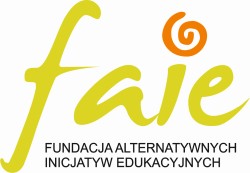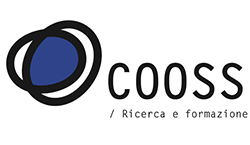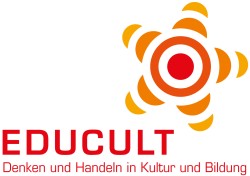Displaying items by tag: competences
RECOMMENDATIONS FOR THE EUROPEAN PROJECT MANAGERS' COMPETENCES RECOGNITION AND VALIDATION SYSTEM FOR LIFELONG LEARNING developed by the FIRST Network
Based on the results of the 34 months long European exchange and consultations process, the recommendations for the validation and recognition system for the European project managers working in civil society organisations are:
- Acknowledge that the dimension of mission and purpose is crucial in the 3rd sector.
- Define clear definitions/understandings of competences, skills and experiences.
- Build competence validation and recognition systems encompassing theoretical and practical parts of a competence.
- Allow flexibility that considers the diversity of the civil society.
- Recognise cultural and social differences.
- Be sensitive to the qualities of values and attitudes.
- Ensure validation through transparent procedures.
- Ensure recognition of formal, non-formal and informal knowledge.
- Ensure simplicity to understand and measure.
- Allow accessibility for those already working in the area [of civil society] and also those without experience.
- Consider the complexity of the individual personality [of the candidates to validate and recognise their competences].
- Take into account work experience in various areas.
- Have the recognition and validation system evidence-based to achieve recognised status in the European Union.
- Include references to the already existing, similar/relevant recognition and validation schemes to avoid “reinventing the wheel".
By making progress in the areas as mentioned above, we will address the most critical and helpful root characteristics of the valuable and practical validation system for the European projects' managers and achieve positive change in many other areas such as:
- Transparency and recognition of skills and qualifications on the European level.
- Extending and developing the competences of educators and other personnel who support adult learners.
- Supporting the setting up of and access to upskilling pathways.
- Strengthening the European Civil Society Organisations sector.
- Promoting lifelong learning among the Europeans.
The reccommendations were developed in the frame of the project AER-V "Recommendations for international project managers competences recognition and validation for lifelong learning" co-funded by the Erasmus Plus Programme of the European Union, involving the following FIRST Network members:
Fundacja Alternatywnych Inicjatyw Edukacyjnych (PL), www.fundacjaaie.eu (Leader)
Cooperativa Sociale COOSS MARCHE ONLUS scpa (IT), http://www.cooss.it/it/
Interfolk, Institut for Civilsamfund (DK), www.interfolk.dk
EDUCULT - DENKEN UND HANDELN IN KULTUR UND BILDUNG (AT), www.educult.at
Rightchallenge - Associação (PT), www.rightchallenge.org
and
Future Worlds Centre (CY), www.futureworldscenter.org
More details: HERE
RECOMMENDATIONS FOR THE EUROPEAN PROJECT MANAGERS' COMPETENCES RECOGNITION AND VALIDATION SYSTEM FOR LIFELONG LEARNING
Based on the results of the two-year-long European exchange and consultations process, the recommendations for the validation and recognition system for the European project managers working in civil society organisations are:
- Acknowledge that the dimension of mission and purpose is crucial in the 3rd sector.
- Define clear definitions/understandings of competences, skills and experiences.
- Build competence validation and recognition systems encompassing theoretical and practical parts of a competence.
- Allow flexibility that considers the diversity of the civil society.
- Recognise cultural and social differences.
- Be sensitive to the qualities of values and attitudes.
- Ensure validation through transparent procedures.
- Ensure recognition of formal, non-formal and informal knowledge.
- Ensure simplicity to understand and measure.
- Allow accessibility for those already working in the area [of civil society] and also those without experience.
- Consider the complexity of the individual personality [of the candidates to validate and recognise their competences].
- Take into account work experience in various areas.
- Have the recognition and validation system evidence-based to achieve recognised status in the European Union.
- Include references to the already existing, similar/relevant recognition and validation schemes to avoid “reinventing the wheel".
By making progress in the areas as mentioned above, we will address the most critical and helpful root characteristics of the valuable and practical validation system for the European projects' managers and achieve positive change in many other areas such as:
- Transparency and recognition of skills and qualifications on the European level.
- Extending and developing the competences of educators and other personnel who support adult learners.
- Supporting the setting up of and access to upskilling pathways.
- Strengthening the European Civil Society Organisations sector.
- Promoting lifelong learning among the Europeans.
The context: AER-V
An international team composed of six Civil Society Organizations from Poland, Italy, Denmark, Austria, Portugal and Cyprus worked together for over two years to develop the recommendations supporting the recognition and validation of knowledge, skills and competences of the European project managers active in Civil Society Organisations.
In the frame of the project AER-V "Recommendations for international project managers competences recognition and validation for lifelong learning" co-funded by the Erasmus Plus Programme of the European Union, the team has conducted six international exchanges of experiences and good practices, concluded with the short-term joint staff training event, Structured Democratic Dialogue Co-laboratory.
The goal of the AER-V initiative was to support the recognition and validation of knowledge, skills and competences of international project managers active in Civil Society Organisations (CSOs) in the adult education sector, acquired through formal, non-formal and informal learning.
The AER-V team has been working for the benefit of the direct target group, including the members, workers, co-workers, educators and volunteers of the Third Sector adult education organisations
(i.e. Civil Society Organisations, including informal groups, Non-governmental organisations and other non-profit organisations).
The AER-V initiative was the follow-up initiative building on the conclusions and recommendations of a previous project, the "First-time international projects realisers support network", realised in the period October 2018 – December 2020. One of the results of this project was the founding of the FIRST Network, an international network of civil society organisations operating in the area of adult liberal education (lifelong learning). The Mission of the FIRST Network is to strengthen the capacity of civil society organisations and entities active in the adult education sector to operate in the international arena, enhancing innovativeness and the ability to adapt to changes in the modern world. All the organisations realising the AER-V initiative are also members of the FIRST Network.
As a result of the AER-V initiative, a list of Recommendations to give suggestions for the validation and recognition system for the European project managers working in the civil society organisations was developed and is now being shared with the civil society organisations and the other stakeholders interested in European cooperation, lifelong learning and the broad public.
We consider that raising awareness of the need and usefulness of the validation and recognition system of the competences of the European project managers working in civil society organisations is one of the most important steps to ensure transparency and recognition of skills and qualifications on the European level as well as to facilitate the European cooperation and promote lifelong learning.
We would highly appreciate it if you endorse this initiative and the Recommendations.
The FIRST Network Team.
ATTACHMENTS:
1. Report: The short-term joint staff training event, Structured Democratic Dialogue Co-laboratory, picturing the whole process of developing the recommendations.
Glossary of Important Skills and Competences
This glossary, created by the European Commission, highlights key competences and skills needed in contemporary Europe. These can also be incorporated into application materials.
The glossary defines skills and competences in the following categories
- Knowledge
- Skills
- Attitudes and values
- Language skills and knowledge
Check out the full glossary here.
Quality in Validation of Prior Learning: Results from a research project about a Nordic quality model for validation.
A group of researchers from Finland, Sweden and Denmark has conducted a study on quality in the validation process. The researchers have started from a model for quality assurance in validation developed by NVL's expert network for validation in 2013. The researchers have studied the model's usefulness by letting three education providers in the Nordic countries participate in an interactive research process in 2016 and 2017
The results in the report show that the model works to point out strategically important parts and phases in the validation process from a quality assurance perspective. The researchers can see that the model's broad approach has been useful in identifying development areas in all participating education providers, regardless of country and difference in organization.
The Nordic Quality Compass for Validation of Prior Learning
The Nordic network on validation of prior learning released a set of web-based tools in December 2020. The Nordic Quality Compass tools are based on the work carried out earlier (2011–2016) by the network.
The tools can now be fully operated online with a possibility of creating a personal account and development plans. The set of tools consist of two tools for system and procedure evaluation purposes and three tools for practitioners (assessors, counsellors, and coordinators) for self-assessment purposes.
→ The tools are available for free at https://qualitycompass.eu.
Policy Brief on Quality in validation of prior learning in the Nordic region
The Policy Brief is published 8 th of February 2021 by the Nordic Network for Adult Learning (NVL) that refer to the Nordic Council of Ministers .
The Policy Brief highlights ten years of the validation network's development work around the issue of quality in validation of prior learning, including the most recent web-based set of evaluation tools for policy makers as well as practitioners. It also takes a look at the current situation in the Nordic region, pinpointing the most prevalent strengths, weaknesses, opportunities as well as threats in terms of validation. The network has laid out a set of practical recommendations for future action, including expanding high-quality validation practices from formal learning towards working life and non-formal and informal settings.
The handbook about designing, planning and organising INTERNATIONAL, European training courses for the first-time internaional projects realisers.
In this handbook for interested in international cooperation you will find, firstly, a brief review the basics of andragogy and adult education methods. Secondly, you will find here real, practical examples on organising European level, international trainings supporting international cooperation. How to plan, design and deliver international training for first-time international projects realisers? What should it contain? What methods could be used? What possible training programmes could be realised? And especially - how to turn a 'traditional', on-the-site training into an online form? Feel invited to get inspired by the Polish, Hungarian, Danish, Austrian and Italian experiences while planning your trainings - or chosing the best training offer to upgrade your competences!
The report presenting results of the international survey on key competences of the international projects managers.
The research was realised in Poland, Italy, Hungary, Denmark and Austria in the spring 2019. It consisted of on-line questionnaire, interviews and a desk research. The research respondents were over 200 managers and management bodies members of the civil society organisations active in the field of lifelong learning, as well as several specialists working for the European grant programmes operators. In addition to the key competences of the international project managers, the report describes the needs of support expected by the international cooperation specialists from the managers of the organisations they are working for.











